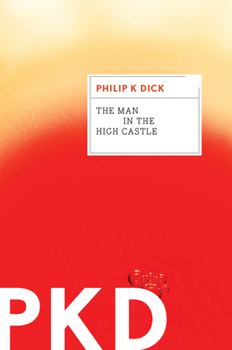The Man in the High Castle
Select Format
Select Condition 
Book Overview
In this Hugo Award-winning alternative history classic--the basis for the Amazon Original series--the United States lost World War II and was subsequently divided between the Germans in the East and the Japanese in the West.
It's America in 1962. Slavery is legal once again. The few Jews who still survive hide under assumed names. In this world, we meet characters like Frank Frink, a dealer of counterfeit Americana who...
Customer Reviews
The amazon series was way better
Alternative history at its best!
Do Not Watch the Television Series First!
The Grasshopper Lies Heavy
A complex book that defies labels!
Dick's Masterpiece
Things are not as they seem. Skim milk masquerades as cream.
The Man in the High Castle Mentions in Our Blog

Find the perfect music to complement your reading experience? Or vice-versa! Here are twenty vinyl albums (worth double points from now until 4/23) with a reading recommendation for each.

On this day, it is acceptable to be weird and wacky. Let the goofiest part of yourself out the cellar of your mind to flap its arms and finger its lips while going blubblubblub. In other words, it's a day for odd fun. In the spirit of that, we at ThriftBooks have decided to recommend eight bizarro titles to help you get your Weird Hat on!






